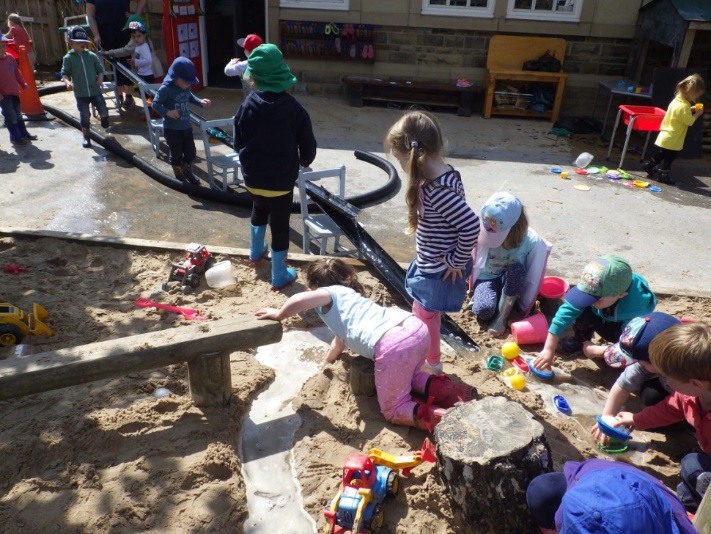Intentional Pedagogy
Intentional Pedagogy
Sandra Matthews, one of our very experienced early years personal tutors from Harrogate, Yorkshire, is a true lifelong learner, always delving deeper and thinking about how she and her colleagues can provide better and better support for children’s learning at Acorns.

Recently in my setting we have been thinking about our ‘intentional pedagogy’. This isn’t a term I’ve come up with myself. As with many things in early years, I have borrowed it, following training on assessing ‘Sustained Shared Thinking and Emotional Well-being’, and the phrase really struck a chord with me. I can honestly say that since I have recognised the concept of intentional pedagogy, our whole outlook has changed - not what we're doing, as we've been doing it this way for years, but how we see it. It has made us realise how immensely important our interactions with children are.
I have struggled for years to effectively explain to parents and other practitioners how learning takes place. I often talked about ‘taking the learning to the child’ or ‘starting from the child’, but the explanations I came up with were never quite clear enough to convey what it actually is that adults do as they work with children on a daily basis. Some parents (and practitioners) worry that if we follow the child’s interests, they are running wild all day, doing whatever they want. This of course isn’t the case. For intentional pedagogy to work effectively, a highly organised and well-planned and considered setting is needed, so children learn from adults, other children and, as explained in Reggio Emilia philosophy, ‘the third teacher’. This is the environment in which children can explore open-ended and interesting resources, either independently or with someone else, adult or child, who can facilitate their learning. Children do take the lead and adults listen, observe, and then sensitively join in, not changing play, but enhancing it.
I believe that this specific way of teaching, where adults sensitively support children’s learning in every interaction, ensures that children can be engaged in their deepest levels of involvement, following their own interests and keeping them in, as Vygotsky (1976) identified, their ‘Zone of Proximal Development’, where adults scaffold their next steps, as and when they happen, in the moment.
It is my belief that intentional pedagogy enables adults working with children to recognise their most important role – being with and interacting with children. In my setting, at any time, looking around one would see all adults deeply engaged in learning, often with a small group of children. There may be others playing on their own, or with friends and without an adult, but they will also be deeply engaged with their environment. One comment that visitors often make is that the children are all very busy. I also note that when I listen to conversations as I move around, I hear children saying phrases to each other such as ‘I wonder what would happen if…’ and ‘maybe we could try…’. The children are amazing problem solvers and love a challenge. Adults are always on hand to encourage their thinking and move learning forward.
Reference
Siraj, I, Kingston, D, and Melhuish, E (2015) Assessing Quality in Early Childhood Education and Care, IOE Press, London.
Tags
- BPN News
- In the Media
- NPQ
- Scholarship
- Leadership
- Apprenticeship
- EPAO
- SEN
- Early Years
- School Business Management
- SBP Apprenticeship
- Early Career Teachers
- International NPQ
- iSENCo
- International Schools
- Partnership
- Teaching Assistants
- Partner News
- Events
- Job Opportunities
- Clerking
- Case Study
- PRU
- Podcast
- Level 3 Early Years Educator (EYE) Apprenticeship
- ECF
- ITT
- BPN Boost
Latest News
Introducing the Neurodiversity Network
We’ve launched a new Neurodiversity Network to support neurodivergent student teachers throughout their training. Jessica Sutton shares why it was created and how it’s already making a difference.

